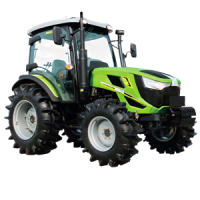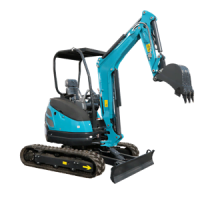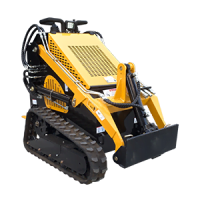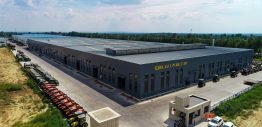In the age of innovation and environmental consciousness, the world of agriculture is undergoing a remarkable transformation. At the heart of this revolution is precision agriculture, a pioneering approach that leverages technology to optimize farming practices. Tractors, the unsung heroes of the fields, have evolved into high-tech, data-driven machines that play a pivotal role in this transformation. In this extensive 8000-word guide, we delve deep into precision agriculture, exploring how tractors are at the forefront of this revolution. From the basics to cutting-edge technologies, we scrutinize the complexity and burstiness of how tractors are changing the face of farming.
Introduction
The Precision Agriculture Paradigm
Begin by introducing the concept of precision agriculture and its significance in addressing the challenges of modern farming.
Tractors: The Backbone of Precision Agriculture
Highlight the central role that tractors play in enabling precision agriculture practices.
Precision Agriculture: Fundamentals
What is Precision Agriculture?
Define precision agriculture and its core principles. Explain how it goes beyond traditional farming methods.
The Data-Driven Approach
Explore how data collection and analysis are the foundation of precision agriculture, transforming farming into a science.
Tractors in the Digital Age
Advanced Tractor Technologies
Delve into the technologies integrated into modern tractors, such as GPS, sensors, and telemetry systems.
Connectivity and Data Management
Explain how tractors are becoming data hubs, collecting valuable information about soil, crops, and weather.
Autonomous Tractors: A Glimpse into the Future
Discuss the emergence of autonomous tractors and how they are redefining farming operations.
Precision Farming Techniques
Precision Planting
Explain how tractors equipped with precise planting technologies optimize seed placement for higher yields.
Fertilizing with Precision
Explore how tractors are used to apply fertilizers with pinpoint accuracy, reducing waste and environmental impact.
Targeted Pest Control
Discuss how precision agriculture techniques help farmers target pests only where necessary, minimizing the use of pesticides.
Harvesting Efficiency
Detail how tractors and associated machinery are improving harvesting efficiency, leading to reduced crop losses.
Sustainability and Resource Management
Reducing Environmental Impact
Highlight how precision agriculture practices, facilitated by tractors, reduce soil erosion, water usage, and chemical runoff.
Soil Health and Conservation
Explain how precision farming promotes soil health through practices like no-till farming and cover cropping.
Water Management
Discuss the role of tractors in efficient water management through techniques like drip irrigation and soil moisture monitoring.
Biodiversity Preservation
Explore how precision agriculture allows for more diverse crop rotations and sustainable land management practices.
Economic Benefits of Precision Agriculture
Improved Yield and Profitability
Demonstrate how precision agriculture with tractors leads to increased crop yields and enhanced profitability for farmers.
Cost Reduction
Discuss how resource optimization and reduced waste result in cost savings, making precision agriculture economically viable.
Government Support
Highlight government initiatives and incentives that encourage farmers to adopt precision agriculture practices.
Challenges and Future Directions
Challenges in Precision Agriculture
Acknowledge the hurdles that precision agriculture faces, including initial investment costs and the need for specialized knowledge.
Future Innovations
Discuss the future of tractors in precision agriculture, including AI-driven technologies and robotics.
FAQ
Q1: How do precision agriculture techniques benefit small-scale farmers?
Precision agriculture can be scaled to suit small farms. It enables these farmers to maximize yields and reduce waste, making their operations more sustainable and profitable.
Q2: Are autonomous tractors practical for all types of farming?
Autonomous tractors are versatile and can be adapted to various farming types, from row crops to orchards. Their practicality depends on specific farming needs and conditions.
Q3: What is the environmental impact of precision agriculture compared to traditional farming?
Precision agriculture typically has a lower environmental impact due to reduced chemical use, minimized soil disturbance, and optimized resource management.
Q4: How can farmers access the technology needed for precision agriculture?
Farmers can access precision agriculture technology through various means, including leasing, government grants, and collaboration with agricultural technology providers.
Q5: What are the potential drawbacks of relying on technology for farming?
Overreliance on technology can lead to cybersecurity risks and increased vulnerability to system failures. Farmers must balance technology with traditional farming knowledge.
Conclusion
Precision agriculture, with tractors at its core, is revolutionizing farming practices across the globe. It offers not only increased yields and profitability for farmers but also sustainable and environmentally responsible solutions. As we look to the future, the integration of technology, data, and tractors will continue to reshape agriculture, ensuring a brighter and more efficient future for food production worldwide.







-1.png)